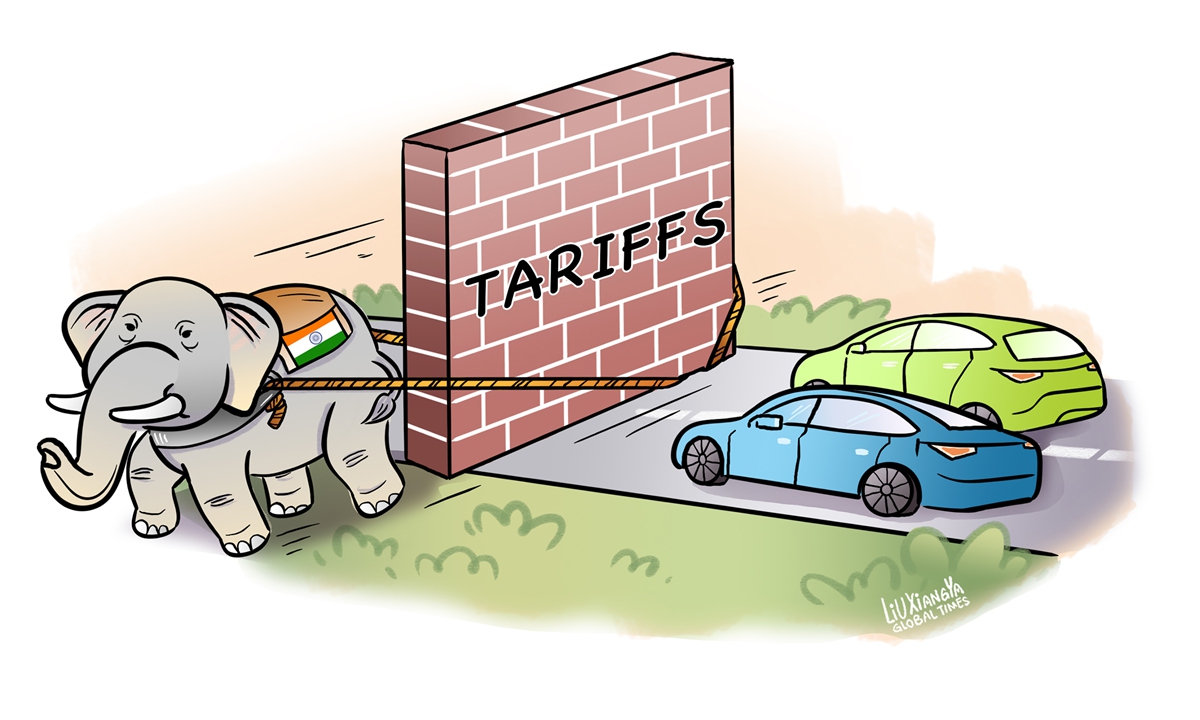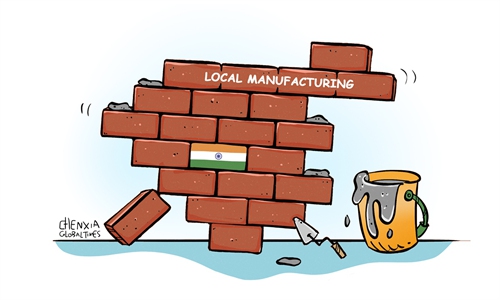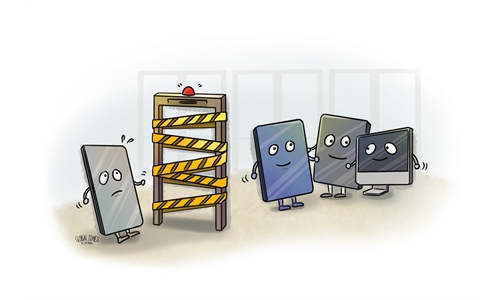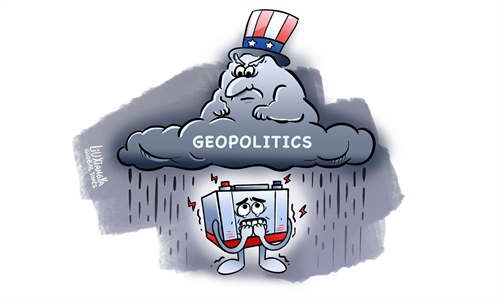
Illustration: Liu Xiangya/Global Times
India is considering a request from Tesla to lower tariffs for imported electric vehicles (EVs), the Financial Times reported on Monday, citing Indian government officials, as the US EV giant explores setting up a plant in the country.As reported, Tesla has asked New Delhi for an initial tariff concession that would allow it to offset India's steep customs duty of 70 percent for cars priced below $40,000, and 100 percent for cars above $40,000 or more. If India can cut tariffs for imported EVs, it will send a positive signal that India is still committed to stepping up the development of its manufacturing industries and attracting foreign investment. This will be good news for the Indian economy, but meanwhile, its manufacturing ambitions will probably also pose a policy dilemma for the country.
From an economic perspective, an expanding manufacturing sector means increased demand for intermediate products such as components and parts, and China is an appropriate partner for India, taking into consideration China's mature EV supply chains.
From a geopolitical perspective, however, mutually beneficial economic cooperation is seen as a zero-sum game, in which India constantly suppresses Chinese companies, especially following the China-India border conflict in 2020 when anti-China sentiment soared in the country.
India is in a critical period of manufacturing development. On the one hand, India needs cooperation with China's supply chain, but on the other hand, it tends to suppress Chinese companies, as the ghost of nationalism lingers in the country. Its contradictory mind-set and paranoia toward China will hinder its manufacturing development and place a heavy burden on the Indian economy.
It is precisely because of this contradictory mind-set that India will find it difficult to have its own real economic takeoff in the manufacturing sector and replace China's position as the new "world factory."
Let's take the example of EVs. The development of a local EV supply chain, including but not limited to mining, refining and battery production, will set the pace of EV manufacturing in India. However, it will take time for India to enhance its industry chain capabilities, and before the country builds up its supply chain capabilities, India has to rely on intermediate product imports.
More importantly, no country can establish and monopolize an entire EV industry chain, ranging from mining to sales. If India wants to make itself an EV manufacturing hub and attract investment from global manufacturers including Tesla, tariff cuts are not enough. The country needs to further integrate into the global industry chain and strengthen cooperation with countries on the supply chain.
China plays a key role in the global EV supply chain. Chinese companies' investment in lithium refining and other aspects of EV battery production is years ahead of the rest of the world. As reported by CNN, Chinese manufacturers' share of the global EV battery market stood at 60 percent in 2022. Some industry executives believe India's EV manufacturing ambitions will rely heavily on existing import-based supply chains, and China will be an important source of intermediate product imports.
India should reflect on its attitude toward Chinese enterprises. Indian newspaper the Economic Times reported earlier this year that India rejected Chinese automaker BYD's proposal to set up a $1 billion factory in India in partnership with Hyderabad-based Megha Engineering and Infrastructures. If India is truly open to foreign investment and wants to make itself the "world's factory" for EVs, the country should ensure Chinese EV companies, including BYD, can get fair treatment in India.
Some Indian politicians may believe that treating Tesla and BYD differently will help India gain favor from Washington and win investment from US companies. However, in the long run, this won't be conducive to the development of the Indian economy and its EV industry, as it will undermine Chinese companies' confidence in India's investment environment, at a time when China-India economic cooperation is becoming increasingly important for the development of India's EV industry.
If India can promote free trade, reduce import tariffs and encourage foreign EV manufacturers to invest and establish factories in the country, such moves will bring momentum to India's economy. In this process, Chinese enterprises should not be treated differently. It is hoped that India can offer a fair business environment for Chinese enterprises and provide equal treatment to them and other foreign companies like Tesla.
The author is a reporter with the Global Times. bizopinion@globaltimes.com.cn



